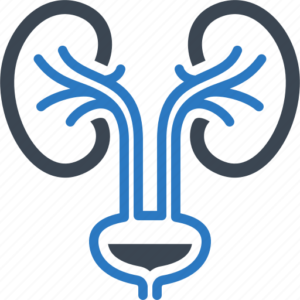Urological Treatment: Comprehensive Guide to Common and Advanced Options
Introduction
If you have symptoms or concerns about your urinary health, a urological exam can provide essential insights. Understanding what to expect during these exams and tests can help you feel more comfortable and prepared. This guide walks you through common urological exams and tests and what they involve.
Initial Consultation
During your first visit, the urologist will review your medical history, discuss your symptoms, and ask about any medications you’re taking. They may also perform a physical exam. This is a good time to ask questions and share any concerns you have. For tips on preparing, see our article How to Prepare for Your Visit to a Urologist.
Get tips on preparing for your urologist visit here!
Physical Examination
A physical exam may include checking your abdomen, genitals, and rectum. The urologist will look for signs of swelling, tenderness, or abnormalities. For men, this may include a digital rectal exam (DRE) to assess the prostate. For more on what to expect, visit How to Identify and Avoid Common Urological Problems.
Urinalysis
A urinalysis tests your urine for signs of infection, blood, or other abnormalities. You’ll be asked to provide a urine sample, which is then analyzed for various indicators. This test helps diagnose conditions like urinary tract infections (UTIs) or kidney issues. For tips on urinary health, check out How to Maintain Urinary Health: Daily Tips and Practices.
Imaging Tests
Imaging tests like ultrasounds, CT scans, or MRIs provide detailed pictures of your urinary tract. These tests help identify issues like kidney stones, tumors, or blockages. They are usually non-invasive and painless. For more on imaging advancements, see Latest Advances in Urological Treatments: What You Need to Know.
Find out how imaging tests are used in urology here!
Cystoscopy
A cystoscopy involves inserting a thin, flexible tube with a camera into your bladder through the urethra. This allows the urologist to examine the inside of your bladder and urethra for any abnormalities. The procedure may cause some discomfort but is usually well-tolerated. Learn more in our post Urological Surgeries and Procedures.
Urodynamic Testing
Urodynamic tests assess how well your bladder and urethra are storing and releasing urine. These tests measure the pressure inside your bladder and can help diagnose issues like incontinence or overactive bladder. Visit How to Identify and Avoid Common Urological Problems for more on bladder health.
Prostate-Specific Antigen (PSA) Test
For men, a PSA test measures the level of prostate-specific antigen in your blood. Elevated PSA levels can indicate prostate issues, including cancer. The test is simple and involves drawing a blood sample. For more on prostate health, check out How to Maintain Urinary Health: Daily Tips and Practices.
Discover what a PSA test involves here!
Biopsy
A biopsy involves taking a small sample of tissue from an organ, such as the prostate or bladder, to check for cancer or other diseases. This is usually done with a needle or during a surgical procedure. The sample is analyzed in a lab to provide a diagnosis. For more information, see Urological Treatment.
Learn how biopsies help diagnose urological conditions here!
Blood Tests
Blood tests can help evaluate kidney function and detect signs of infection or other health issues. Common tests include measuring creatinine and blood urea nitrogen (BUN) levels, which reflect kidney function. Visit Diet and Lifestyle Tips for Preventing Urological Issues for more on maintaining kidney health.
Preparation Tips for Tests
Preparing for urological tests may involve:
- Fasting: You might need to fast before certain tests, like a PSA test.
- Filling Your Bladder: Some imaging tests require a full bladder for better visualization.
- Stopping Medications: Follow instructions if you need to stop certain medications before tests.
For detailed preparation tips, see How to Prepare for Your Visit to a Urologist.
Conclusion
Understanding what to expect during urological exams and tests can help ease your concerns and ensure you’re well-prepared. Regular check-ups and prompt testing are key to maintaining good urinary health. For more information or to discuss your specific needs, visit our Urology Doctor in Lucknow.
